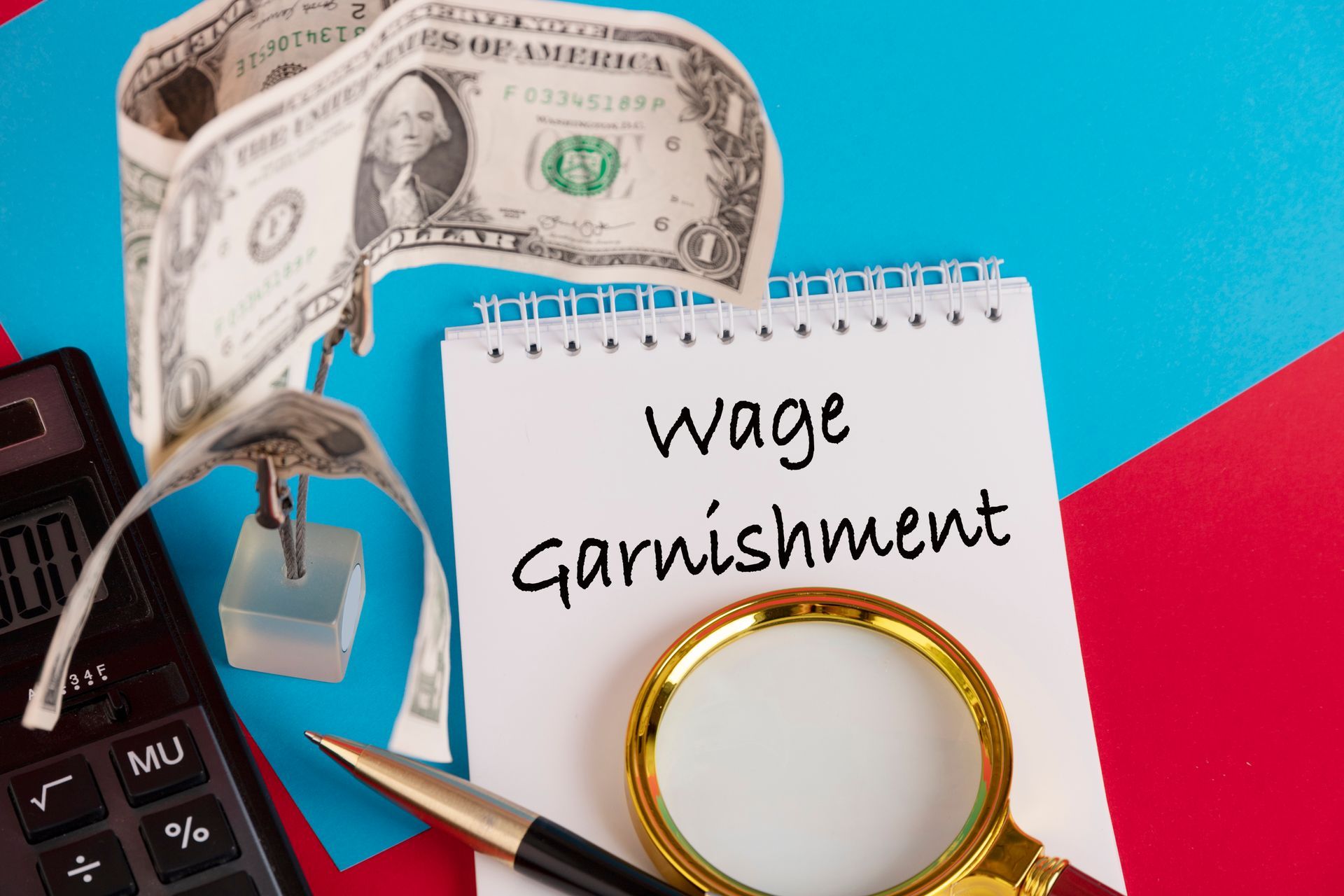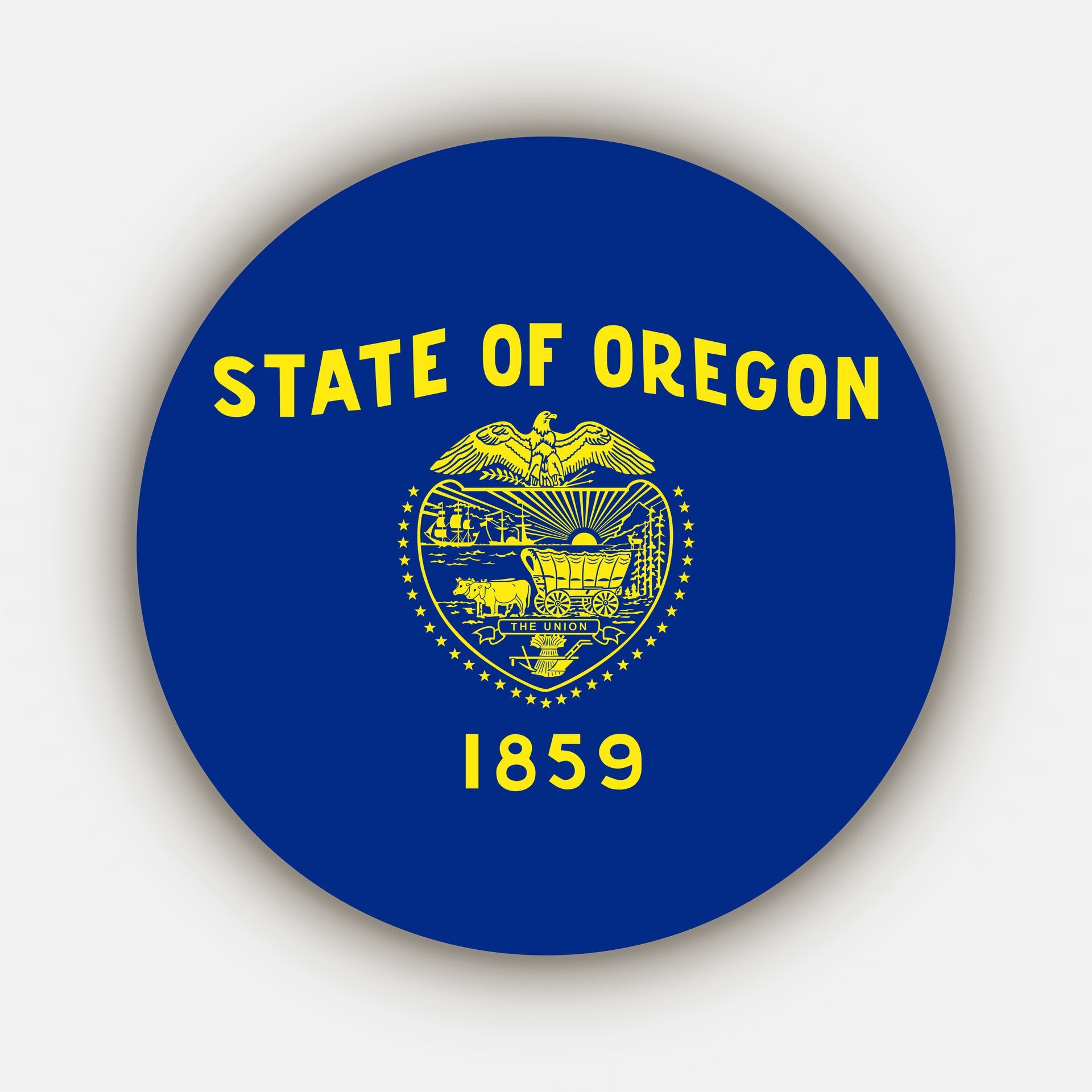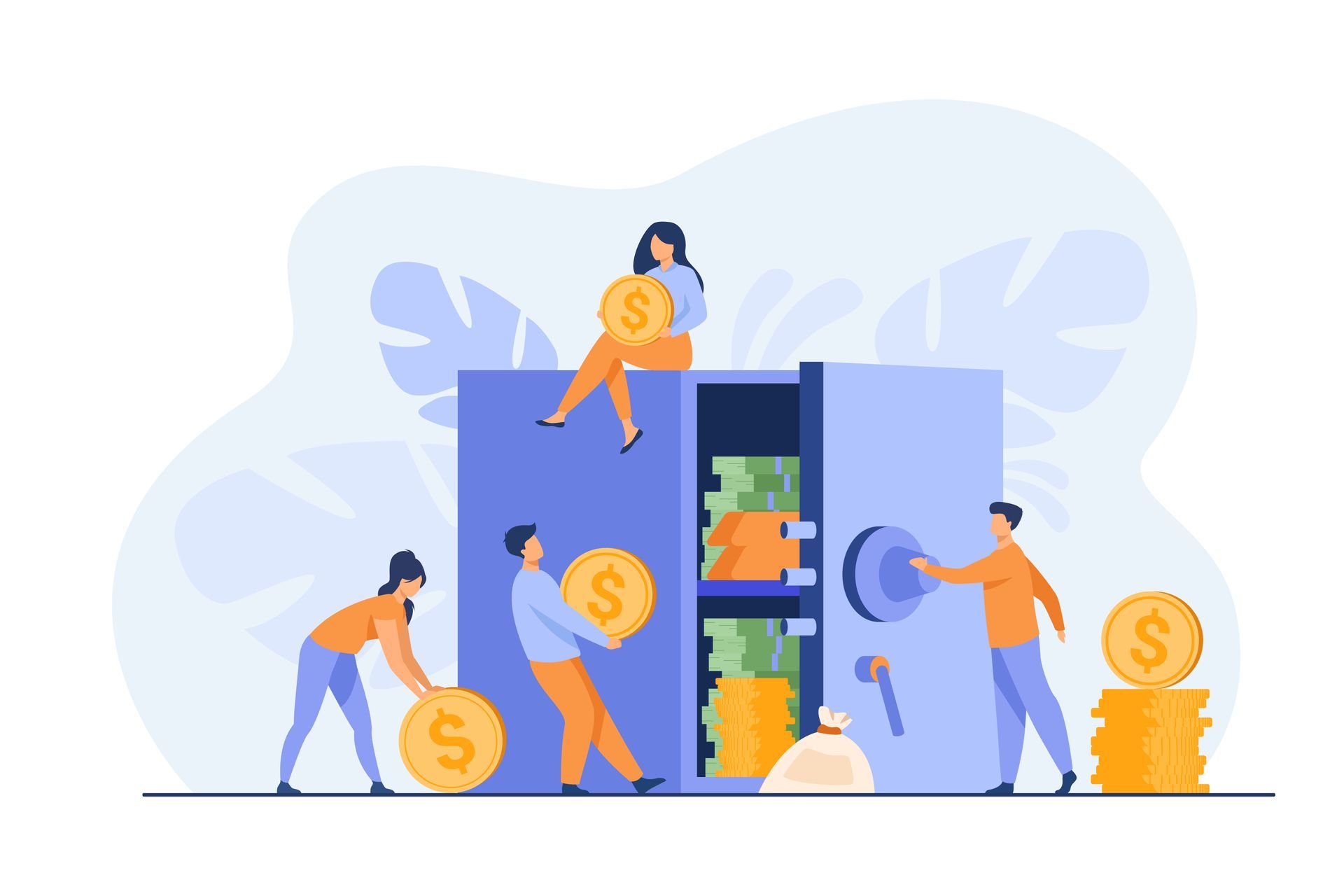Stop Wage Garnishments and Recover Your Hard-Earned Money
Wage garnishment is a legal process that allows creditors to collect a debt by taking a portion of your paycheck. This can be a distressing situation if you are struggling to make ends meet, and it can also lead to a domino effect causing other financial difficulties. There are many situations where someone might end up getting their wages garnished, such as unpaid medical bills, defaulted loans, and credit card debt. However, the good news is that even if wages are garnished, there are ways to stop the process and recover the garnished wages.
The first step in stopping a wage garnishment is to seek legal advice from a bankruptcy law firm. An experienced attorney can help determine the best course of action, which may include negotiating a settlement with the creditor or filing for bankruptcy. Negotiating a settlement usually means having someone who can help you offer the creditor a lump sum to stop the garnishment. Creditors usually won’t stop a wage garnishment just for a promise that you will make payments in the future. Bankruptcy law provides the only sure way to stop a wage garnishment. When you file bankruptcy, there is an automatic stay that immediately stops wage garnishment and other collection activities, giving you a chance to return to a normal financial situation.
Once the garnishment has been stopped, the next step is to see if it is possible to recover some of the garnished wages. If you are eligible to claim the federal bankruptcy exemptions, the creditor is required to return the money that was taken during the 90 days prior to the filing of the bankruptcy case, but only if the creditor got more than $600.00. So sometimes it is necessary to wait and let another wage garnishment go through to get the total amount taken above $600.00.
In conclusion, wage garnishment can be a difficult and overwhelming experience, but it is not the end of the road. With the help of a bankruptcy law firm, it is possible to stop garnishment and recover garnished wages. It is important to take action to learn your options as soon as possible to avoid further financial hardship and get back on the path to financial stability.
What is Wage Garnishment?

Wage garnishment is a legal process where a creditor can obtain a court writ of garnishment to collect a debt by taking a portion of your paycheck. This means that a certain percentage of your wages will be withheld by your employer and sent directly to the creditor until the debt is paid off in full. The amount of wages that can be garnished varies depending on state laws and the type of debt involved.
In Oregon, a continuing wage garnishment lasts only 90 days. The creditor has to renew the writ of garnishment and serve it again on the employer every 90 days.
Wage garnishment can have a significant impact on your income, making it difficult to pay bills and meet basic living expenses. It can also lead to additional financial problems, such as overdraft fees, bounced checks, and collection calls from other creditors. Additionally, having wages garnished can be embarrassing.
Wage garnishment can be initiated by creditors who have sued you and gotten a judgment, usually by default. The kind of creditors who can sue include credit card companies, medical providers, personal or consolidation loans, or online lenders. Student loan lenders, the IRS, and the State of Oregon can collect a portion of your wages without suing your first. However, most creditors must obtain a court judgment before garnishing wages.
It is important to note that in Oregon, there are laws in place to protect individuals from excessive wage garnishment.
Overall, wage garnishment is a serious legal process that can have a significant impact on your finances. Seeking legal advice from a bankruptcy law firm right away can be helpful in deciding if you can stop the wage garnishment and possibly find a way to recover garnished wages.
Common Reasons for Wage Garnishments

- Court-ordered judgments for unpaid debts - Creditors may initiate wage garnishment when you have been sued for outstanding debts, such as credit card debt, personal loans, or medical bills, and losses resulting in a Judgment against you.
- Child support - If you fail to make court-ordered child support payments, the custodial parent or state child support agency may seek a wage garnishment order. Child support wage garnishment can be stopped by bankruptcy to the extent that it is for past due support but would continue for current child support obligations. The past due amounts can be paid in a Chapter 13 but would not be discharged in Chapter 7 so the wage garnishment for the past due amounts could begin after the discharge is entered, usually in about 90 days.
- Tax debts - The Oregon Department of Revenue can initiate wage garnishment to collect unpaid state taxes. The IRS can levy your wages for unpaid federal taxes but must first send a notice of intent to levy, which gives the individual an opportunity to deal with the situation, including asking to be placed on an uncollectable status. You should consult immediately with an experienced bankruptcy or tax attorney if you get a wage garnishment from the State of Oregon or a notice of intent to levy from the IRS.
- Student loans - Defaulted student loans can also result in wage garnishment.
It's important to note that certain types of income, such as Social Security benefits, child or spousal support, unemployment compensation, disability benefits, or retirement income are completely exempt from garnishment. In addition, the proceeds of those sources of income are exempt and can not be garnished from your bank account. If they are, it's essential to seek legal advice from an experienced attorney so that you can file a challenge to the garnishment and demand the return of the garnished funds.
It is also important to remember that continuing wage garnishments apply only to W-2 wages and not to 1099 independent contractor payments. If you are not an employee and do not have taxes taken from your earnings and receive a 1099 instead of a W-2 at the end of the year, then a continuing wage garnishment does not apply to you.
Commercial Fishermen fall in this category and are also covered by 46 USC Section 11109. It provides that their earnings are not subject to wage garnishment.
Also, there are limits on the amount that can be garnished from your wages based on Oregon state laws. If you are experiencing wage garnishment, it's essential to seek legal advice from a bankruptcy law firm to explore your options and possibly stop the process and recover some of your wages.
The Wage Garnishment Process

The wage garnishment process typically involves several steps, including the following:
- The creditor obtains a court order: In most cases, the creditor must obtain a court order before initiating wage garnishment. The creditor must file a lawsuit against the debtor, and if the court finds in favor of the creditor, a judgment is issued that allows wage garnishment.
- Notice of garnishment sent to the employer: Once the court order is obtained, the creditor sends a notice of garnishment to the debtor's employer. The employer is then required by law to withhold a portion of the debtor's wages and send it to the creditor.
- The debtor is sent a notice: The debtor will also receive a notice of garnishment from the creditor, which outlines the reason for the garnishment and the total amount owed. However, the creditor is allowed to send this notice to the debtor at the same time or shortly after sending the writ of garnishment to the employer. So usually, the first time that you know that you have been garnished is when you get a call or a notice from your payroll or human resources department.
- The exact amount that will be withheld from your wages is determined by your employer based on the available exemptions. These are outlined in the response to the writ of garnishment that the employer must fill out and return to the creditor.
- Wage garnishment begins: The debtor's employer fills out the response to the garnishment and determines how much they will be withholding from your wages. They have to keep sending a response and a payment to the creditor for 90 days or until the debt is paid off in full.
- After 90 days, the garnishing creditor has to send your employer another writ of garnishment before more money is withheld from your wages. If they do, it starts the process over again.
In summary, the wage garnishment process involves obtaining a court order, sending a notice of garnishment to the employer, who then begins to withhold a portion of the debtor's wages for 90 days or until the debt is paid off. Debtors may seek legal advice to challenge the wage garnishment or try to negotiate a settlement.
Oregon Wage Garnishment Laws

In Oregon, there are specific laws and regulations related to wage garnishment. These laws outline what creditors are allowed to garnish and the limits on the amount that can be withheld from an individual's wages.
Oregon law allows wage garnishment for certain types of debts, including unpaid taxes, child support, and court-ordered judgments. However, there are also exemptions and limitations on what can be garnished, such as a portion of an individual's disposable income.
Additionally, Oregon law provides certain protections for individuals who are subject to wage garnishment. For example, creditors must provide a notice of garnishment to the debtor and the employer, and the debtor has the right to challenge the garnishment in court. In some cases, the debtor may be able to negotiate a repayment plan or settlement with the creditor to avoid wage garnishment.
It's important to note that these laws can be complex and may vary depending on the specific circumstances of the wage garnishment case. If you are facing wage garnishment in Oregon, it's essential to seek legal advice from a bankruptcy law firm to understand your rights and explore your options.
Maximum Garnishment Limits in Oregon
Under Oregon law, the maximum amount that can be garnished from an individual's wages is 25% of their disposable income or the amount by which their disposable income exceeds 40 times the minimum wage, whichever is less. Disposable income is defined as the individual's income after deductions for taxes, Social Security, and other mandatory deductions.
It's important to note that some types of income are exempt from garnishment under Oregon law, including certain government benefits, retirement income, and disability benefits. Additionally, there are certain exemptions for low-income individuals and those who are the head of household.
Compared to federal law, which allows for up to 25% of disposable income to be garnished for most types of debts, Oregon's maximum limits are more favorable for debtors. However, it's important to keep in mind that these limits may still have a significant impact on an individual's income and financial well-being.
If you are facing wage garnishment in Oregon, it's crucial to understand the specific limits and exemptions that apply to your situation. Working with a bankruptcy law firm can help you navigate the wage garnishment process and explore your options for resolving the debt.
Exemptions and Special Rules in Oregon

One unique exemption in Oregon is for tips received by employees. Under Oregon law, tips are considered the property of the employee and cannot be garnished. This means that if an employee's wages include tips, those tips cannot be included in the calculation of the maximum amount that can be garnished.
If you work for or an amount near the minimum wage or are working part-time, the amount that can be garnished is limited to the amount by which your earnings exceed 40 times the minimum wage per week.
Oregon also has special rules for what happens when a person who already has a child support garnishment gets a wage garnishment from another creditor. When child support is already being garnished, the amount that can be withheld from an employee's paycheck for a regular creditor is strictly limited so that the combined amount does not exceed 25% of their disposable income.
If you are facing wage garnishment in Oregon, it's important to work with a bankruptcy law firm to understand your rights and explore your options for resolving the debt.
Employer's Role in Oregon Wage Garnishments
Employers in Oregon have important responsibilities and potential liabilities when it comes to wage garnishments. As the party responsible for withholding and remitting the garnished wages, employers must comply with state and federal laws related to wage garnishment.
One of the primary responsibilities of employers in the wage garnishment process is to accurately calculate and withhold the appropriate amount of wages. This includes determining the maximum amount that can be garnished under Oregon law and accounting for any exemptions or special rules that apply. Employers must also notify the employee of the garnishment and provide them with a copy of the garnishment order.
Failure to comply with wage garnishment laws can result in liability for the employer. For example, if an employer fails to withhold the appropriate amount of wages or fails to remit the garnished wages to the creditor, they may be held liable for the amount of wages that were not garnished or paid to the creditor. Additionally, employers may face legal action if they retaliate against an employee for having wages garnished.
To avoid potential liability and ensure compliance with wage garnishment laws, employers should consult with legal counsel and establish clear policies and procedures for handling wage garnishments. This includes training HR staff on the wage garnishment process and establishing systems for accurately calculating and remitting garnished wages.
Remember, however, if the garnishment is for an individual who is an independent contractor and not an employee, the wage garnishment does not apply to them. If you are not required to withhold taxes and you send them a 1099 instead of a W-2 at the end of the year, a continuing wage garnishment would not apply to their earnings.
If you operate a commercial fishing vessel and have a crew who receive a share of the catch proceeds, 46 USC 11109 specifically provides that their earnings are not subject to garnishment.
How to Stop Wage Garnishments

The ways to stop a garnishment is limited basically to reaching a settlement with the creditor serving the writ of garnishment or filing bankruptcy. There really are no other common or effective ways to stop a garnishment.
Negotiate with the Creditor
Creditors usually will not stop a wage garnishment once it has started. It is very unlikely that you will be able to get them to agree to stop the garnishment in exchange for a promise to make payments.
Payment plans usually have to be negotiated earlier in the collection process such as before a lawsuit is filed or before a judgment is taken. But once it is to the point that a writ of garnishment has been served, the only settlement that is usually available is for a lump sum payment.
Creditors will usually take a discount for cash, typically 25% to 35%. Sometimes though, they will consider stopping a garnishment for a substantial down payment followed by payments.
Contest the Garnishment
The only way to contest a wage garnishment is to ask the court to set aside the underlying judgment on the grounds that it was taken in error. This must be done within 6 months after it is entered and must be based on an allegation that the lawsuit wasn’t properly served on the defendant in the first place. It is very difficult to do and isn’t usually successful.
File a Claim of Exemption
For wage garnishments in Oregon, it is not necessary to file a claim of exemption. Your employer must take the wage exemptions into consideration when filling out the response to garnishment and determining how much of your wages must be sent to the creditor.
If the garnishment was against your bank instead of your employer and money was sent to the creditor that can be traced to your wages or to other exempt sources like social security, retirement, unemployment compensation, or worker’s compensation, you must file a challenge to garnishment to claim your exemption within 30 days. This is filed with the Court and served on the creditor. They have to either honor it and return the money (75% in the case of wages) or object to it. In that case, you must request a hearing and be prepared to prove that the money taken can be traced to an exempt source.
File for Bankruptcy
If the garnishment is just part of larger overall financial problems or is for a substantial debt, you may want to consider filing bankruptcy. It is definitely worth it at least to get information about this option so that you can include it in your decision-making process.
Filing for bankruptcy can stop wage garnishments but there are many pros and cons of filing bankruptcy and you should consider all of the implications of this option before deciding that it is best for you. Both Chapter 7 & 13 stop garnishments automatically and an
experienced bankruptcy attorney can help you decide if it is a good idea to file and, if so, which Chapter would be better for you.
Recovering Garnished Wages

Is it possible to recover the money taken from your wages? Can the creditor be forced to give some of all of the money back?
Identifying Over-Garnishment
In Oregon, wage garnishment is limited to 25% of your net wages. If your employer has withheld more than 25% and paid it to the creditor, it is up to them to demand that the creditor return it or to withhold less from the next check(s) until the correct amount has been withheld over several checks.
If your employer withholds too much, they may have underpaid you and be liable for damages for failing to pay you your full wage. So the place to start if your wages have been over-garnished is to contact your payroll or human resources department.
Filing a Claim for Recovering Garnished Wages
Under some circumstances, you can recover some or all of your garnished wages if you file bankruptcy. First, you must be eligible to use the federal bankruptcy exemptions. This means that you have either lived in Oregon for two and a half years continuously or that you previously lived in a state that allowed the use of those exemptions. Second, if you own a home, you may want to use them and instead use the Oregon exemptions which have a larger homestead exemption.
If you can use the federal exemptions and you file bankruptcy, you can recover all of the wages garnished in the 90 days before your case was filed, so long as that amount is at least $600.00.
Working with an Attorney for Recovery
You should always consider
contacting an experienced bankruptcy attorney to discuss whether bankruptcy is an option for you. They can help you decide whether it would be worth it to file to stop the garnishment and maybe recover some or all of your wages that were already paid to the creditor. A good bankruptcy attorney can help you decide if it is a reasonable option given your overall financial situation.
Protect Your Wages and Financial Well-Being

A wage garnishment can leave you literally unable to pay your bills. It may be the first step to serious financial hardship. Therefore, it is important to get legal advice as soon as you know that you have been sued. This way you have the best chance to protect your wages and maintain your financial well-being. At that point, it may still be possible to negotiate a payment arrangement and avoid having your wages garnished in the first place.
An experienced attorney can help you consider all of the options and identify the best way to have better credit sooner rather than later.









Share On: